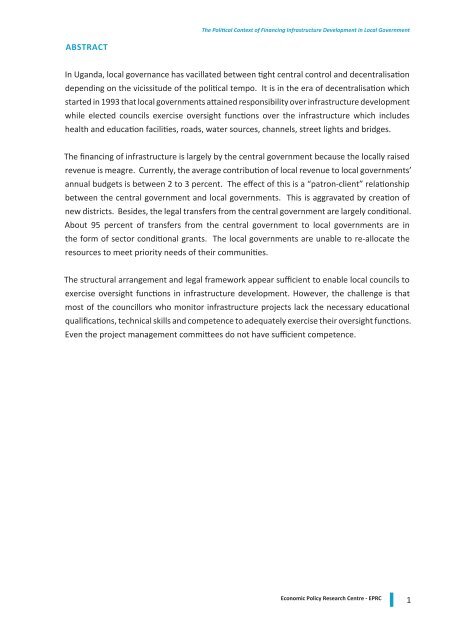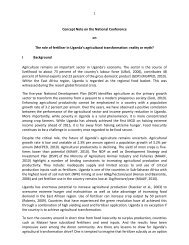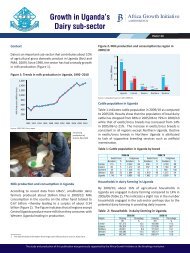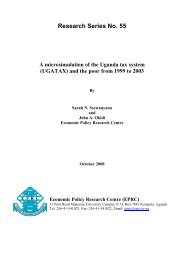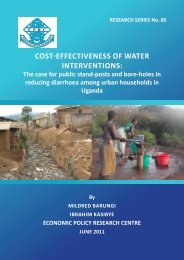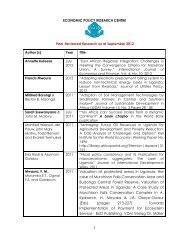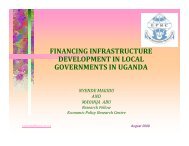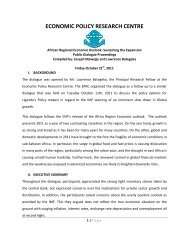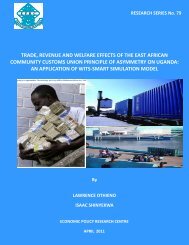The Political Context of Financing Infrastructure Development in ...
The Political Context of Financing Infrastructure Development in ...
The Political Context of Financing Infrastructure Development in ...
Create successful ePaper yourself
Turn your PDF publications into a flip-book with our unique Google optimized e-Paper software.
<strong>The</strong> <strong>Political</strong> <strong>Context</strong> <strong>of</strong> <strong>F<strong>in</strong>anc<strong>in</strong>g</strong> <strong>Infrastructure</strong> <strong>Development</strong> <strong>in</strong> Local Government<br />
Abstract<br />
In Uganda, local governance has vacillated between tight central control and decentralisation<br />
depend<strong>in</strong>g on the vicissitude <strong>of</strong> the political tempo. It is <strong>in</strong> the era <strong>of</strong> decentralisation which<br />
started <strong>in</strong> 1993 that local governments atta<strong>in</strong>ed responsibility over <strong>in</strong>frastructure development<br />
while elected councils exercise oversight functions over the <strong>in</strong>frastructure which <strong>in</strong>cludes<br />
health and education facilities, roads, water sources, channels, street lights and bridges.<br />
<strong>The</strong> f<strong>in</strong>anc<strong>in</strong>g <strong>of</strong> <strong>in</strong>frastructure is largely by the central government because the locally raised<br />
revenue is meagre. Currently, the average contribution <strong>of</strong> local revenue to local governments’<br />
annual budgets is between 2 to 3 percent. <strong>The</strong> effect <strong>of</strong> this is a “patron-client” relationship<br />
between the central government and local governments. This is aggravated by creation <strong>of</strong><br />
new districts. Besides, the legal transfers from the central government are largely conditional.<br />
About 95 percent <strong>of</strong> transfers from the central government to local governments are <strong>in</strong><br />
the form <strong>of</strong> sector conditional grants. <strong>The</strong> local governments are unable to re-allocate the<br />
resources to meet priority needs <strong>of</strong> their communities.<br />
<strong>The</strong> structural arrangement and legal framework appear sufficient to enable local councils to<br />
exercise oversight functions <strong>in</strong> <strong>in</strong>frastructure development. However, the challenge is that<br />
most <strong>of</strong> the councillors who monitor <strong>in</strong>frastructure projects lack the necessary educational<br />
qualifications, technical skills and competence to adequately exercise their oversight functions.<br />
Even the project management committees do not have sufficient competence.<br />
Economic Policy Research Centre - EPRC<br />
1


